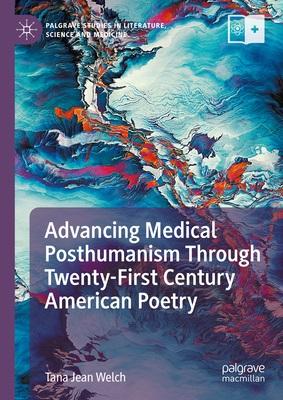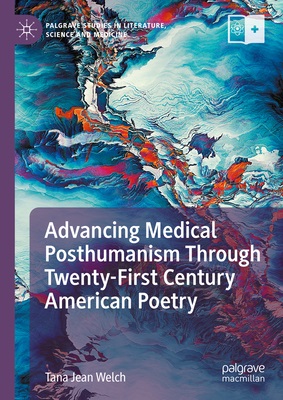Dr. Tana Jean Welch’s New Book Explores the Value of Medical Posthumanism


Associate Professor Tana Jean Welch recently published Advancing Medical Posthumanism through Twenty-First Century American Poetry as part of Palgrave’s Studies in Literature, Science and Medicine Series. Advancing Medical Posthumanism places contemporary poetics in dialogue with biomedicine in order to create a framework for advancing a posthuman-affirmative ethics within the culture of medical practice. This book makes a case for a posthumanist understanding of the body—one that sees health and illness not as properties possessed by individual bodies, but as processes that connect bodies to their social and natural environment, shaping their capacity to act, think, and feel. Welch argues that Contemporary American poetry is specifically poised to develop a pathway toward a posthuman intervention in biomedicine, the field of medical humanities, medical discourse, and the value systems that guide U.S. healthcare in general.
Praise for Advancing Medical Posthumanism:
“Through treating the poem as an object and examining poems as bodies, Tana Jean Welch contributes to the necessary move towards a medical posthumanism and offers insightful readings that consider the relationships between poetry, healthcare, the environment, and what it means to be posthuman. Welch's book is one of the first to explore the intersections between posthumanism and medical humanities, and is therefore a crucial intervention.”
Anna McFarlane, Lecturer in Medical Humanities, University of Leeds, Author of Cyberpunk Culture and Psychology: Seeing Through the Mirrorshades
“This rare book demonstrates why the (post)humanities are relevant to contemporary life; they bring together disciplines, such as ecology and medicine, that suffer from having been ripped apart. Advancing Medical Posthumanism reveals the fragile nature of our multispecies existence, and encourages us to confront the limitations of our own thinking about self, other, health, and life.”
Lucinda Cole, Associate Professor, University of Illinois, Urbana-Champaign Department of English and Institute for Sustainability, Energy, and the Environment

